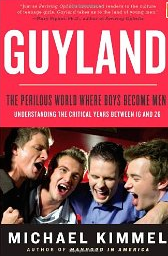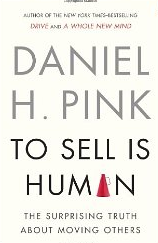I recently read “Makers: The New Industrial Revolution” by Chris Anderson. Below are the quotes I found most interesting. If you like the quotes, please buy the book here.
 “We are all Makers. We are born Makers (just watch a child’s fascination with drawing, blocks, Legos, or crafts), and many of us retain that love in our hobbies and passions.” (13)
“We are all Makers. We are born Makers (just watch a child’s fascination with drawing, blocks, Legos, or crafts), and many of us retain that love in our hobbies and passions.” (13)
“The great opportunity in the new Maker Movement is the ability to be both small and global. Both artisanal and innovative. Both high-tech and low-cost. Starting small but getting big. And, most of all, creating the sort of products that the world wants but doesn’t know it yet, because those products don’t fit neatly into the amss economics of the old model.” (16)
“We are surrounded by physical goods, most of them products of a manufacturing economy that over the past century has been transformed in all ways but one: unlike the Web, it hasn’t been opened to all. Because of the expertise, equipment, and costs of producing things on a large scale, manufacturing has been mostly the provenance of big companies and trained professionals. That’s about to change.” (17)
“”Place” matters less and less in manufacturing these days – ideas trump geography.” (47)
“Now we hardly give the details of computing a thought, in part because maturing technology hides most of that plumbing from us.” (59)
“In short: our species turns out to be a lot more diverse than our twentieth-century markets reflected. The limited store selection of our youth reflected the economic demands of retail of the day, not the true range of human taste. We are all different, with different wants and needs, and the Internet now has a place for all of them in the way that physical markets did not.” (64)
“The Internet also lengthened the tails of physical product markets for consumers. But it did so by revolutionizing distribution, not production.” (64)
“Remember that the real Web revolution was not that we could just buy more stuff with greater choice, but make our own stuff that others could consume.” (65)
“The rise of Facebook, Tumblr, Pinterest, and all the others like them is nothing less than a massive attention shift from the commercial content companies of the twentieth century to the amateur content companies of the twenty-first.” (66)
“Manufacturing has now become just another “cloud service” that you can access from Web browsers, using a tiny amount of vast industrial infrastructure as and when you need it. Somebody else runs these factories; we just access them when we need them, much as we can access the huge server farms of Google or Apple to store our photos or process our e-mail.” (66)
“Nich goods aimed at discriminating audiences can command higher prices.” (67)
“Adam Davidson writers, “Once people reach some level of comfort, they are willing – even eager – to trade in potential earnings at a lucrative but uninspiring job for less (but comfortable) pay at more satisfying work.” (70)
“In all cases, people would pay more for things where their own sweat was one of the ingredients.” (71)
“We live in a “remix” culture: everything is inspired by something that came before, and creativity is shown as much in the reinterpretation of existing works as in original ones.” (74)
“What the new manufacturing model enables is a mass market for niche products. Think ten thousand units, not ten million (mass) or one (mass customization).” (77)
“The collective potential of a million garage tinkerers is about to be unleashed on the global markets as ideas go straight into production, no financing or tooling required.” (78)
“We’re competing in the international market from day one. The usual trap of focusing on the local market first with hopes of expanding internationally later leaves companies unprepared for global competition. Selling to the whole world on day one makes a company stronger.” (105)
“What entrepreneurs quickly learn is that they need to price their product at least 2.3 times its cost to allow for at least one 50 percent margin for them and another 50 percent margin for their retailers (1.5 x 1.5 = 2.25).” (106)
“Most companies actually base their model on a 60 percent margin, which would lead to a 2.6 multiplier, but I’m applying a bit of a discount to capture that initial Maker altruism and growth accelerant.” (106)
“It may sound steep to you now, but if businesses don’t get the price right at the start, they won’t be able to keep making their products, and everyone loses.” (107)
“Any product that can build a community before launch has already proven itself in a way that few patents can match.” (109)
“Once you seed your community with content and start attracting users, your job is to give them jobs. Elevate people who seem to be constructive participants to moderator status, and give especially friendly and helpful members a “noob ninja” badge. Once you promote/reward enough of them for doing a good job of constructive community building, you’ll find that members typically help one another, saving you the work.” (110)
“When you’re creating a community from scratch, consider starting it as a social network rather than as a blog or discussion group.” (111)
“Seen this way, all making in public is marketing. Community management is marketing. Tutorial posts are marketing. Facebook updates are marketing. E-mailing other Makers in related fields is marketing. OF course, it’s not just marketing: the reason that it’s so effective is that it’s also providing something of value that people appreciate and pay attention to. But at the end of the day, everything you do, from the naming of your product to whose coattail you decide to ride (like we chose Arduino), is at least partly a marketing decision. Above all, your community is your best marketing channel.” (112)
“If you’ve given people a reason to gather that serves their needs and interests, crowing about your cool new gizmo isn’t advertising, it’s content!” (112)
“If someone decides to use our files, make no significant modifications or improvements, and just manufacture them and compete with us, they’ll have to do so much more cheaply than we can get traction in the marketplace. If they can do so, at the same or better quality, then that’s great: the consumer wins and we can stop making that product and focus on those that add more value (we don’t want to be in the commodity manufacturing business).” (114)
“it’s a sign of success – you get cloned only if you’re making something people want.” (116)
“When you let anyone contribute and ideas are judged on their merits rather than on the resume of the contributor, you invariably find that some of the best contributors are those who don’t actually do it in their day job.” (127)
“What this taps is the Long Tail of talent; in many fields there are a lot more people with skills, ideas, and time to help than there are people who have professional degrees and are otherwise credentialed.” (127)
“The Web allows people to show what they can do, regardless of their education and credentials. It allows gorups to form and work together easily outside of a company context, whether this involves “jobs” or not.” (148)
“As Thomas Friedman puts it, “It used to be that only cheap foreign manual labor was easily available; now cheap foreign genius is easily available.” (148)
“Companies are full of bureaucracy, procedures, and approval processes, a structure designed to defend the integrity of the organization. Communities, on the other hand, form around shared interests and needs, and have no more process than they require. The community exists for the project, not to support the company in which the project resides.” (150)
“It doesn’t matter who the best people work for; if the project is interesting enough, the best people will find it.” (151)
“In short, electronics can be made in America, as long as they’re specialty electronics, selling in the thousands, no millions.” (161)
“Kickstarter solves three huge problems for entrepreneurs. First, it simply moves revenues forward in time, to right when they’re needed…
Second, Kickstarter turns customers into a community. By backing a project, you’re doing more than pre-buying a product. You’re also betting on a team, and in turn they update you with progress reports and respond to suggestions in comments and discussion forums during the product’s genesis. This encourages a sense of participation in the project and turns backers into word-of-mouth evangelists, which helps projects go viral.
Finally, Kickstarter provides perhaps the most important service a new company needs: market research. If your project doesn’t hit its funding target, it probably would have failed in the marketplace anyway.” (167-168)
“The act of “making in public,” which is what Kickstarter project leaders do, turns product development into marketing.” (173)
“By the time a business process is too boring to comment on, it’s probably starting to actually work.” (208)
“For products that can be made robotically, which is more and more of them, the usual global economic calculus of labor arbitrage is becoming less and less important.” (227)
“What we will see is simply more. More innovation, in more places, from more people, focused on more narrow niches.” (229)
As always, if you liked the quotes, please buy the book here.





